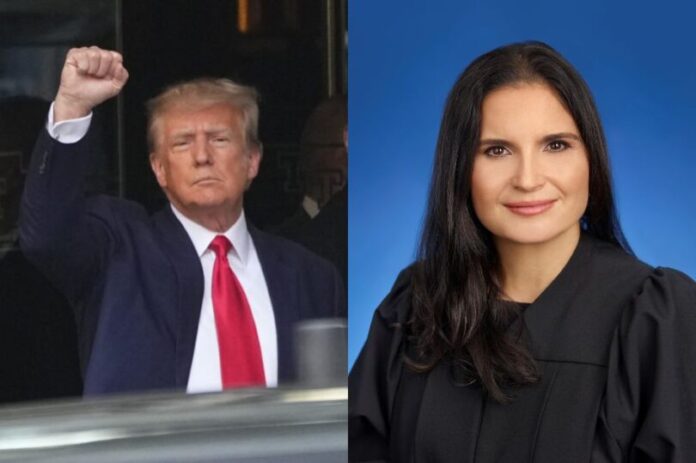
By Stacy M. Brown, NNPA Newswire Senior National Correspondent
Judge Aileen Cannon’s fitness to preside over the high-profile classified documents case involving former President Donald Trump has become increasingly worrisome for legal experts.
On Monday, Aug. 7, the Trump appointee, and unabashed fan of the ex-president rejected special counsel Jack Smith’s attempt to preserve “grand jury secrecy” through sealed filings, raising more questions about her handling of the case.
In her ruling, Cannon questioned the “legal propriety” of Smith’s use of an “out-of-district grand jury to continue to investigate and/or seek post-indictment hearings.”
She demanded that Smith explain this by August 22.
The complexity of the Mar-a-Lago documents case, with portions of the grand jury work conducted in Cannon’s district and Washington, D.C., appeared to perplex the judge, some legal analysts opined.
Former U.S. Attorney Joyce Vance expressed concern online, suggesting that Cannon’s latest order might call into question her fitness to preside over the case.
Andrew Weissmann, a former Assistant U.S. Attorney, echoed the sentiment, stating that Cannon’s order seemed “off base.”
Weissmann further criticized Cannon’s understanding of the case, arguing that the obstruction charges under investigation could have been brought in either Florida or D.C., thus warranting investigation in either district.
He also highlighted that certain alleged conduct occurred outside Florida.
“I’m betting that Judge Cannon’s account of the out-of-district investigation is not the full story,” former senior Department of Justice official Harry Litman said in a Raw Story report.
“But hard to see how she can justify not sealing her order referring to another Grand Jury. Could this be a possible vehicle for taking her up and seeking her recusal? Not clear yet.”
Further, MSNBC host and former prosecutor Katie Phang also remarked that Cannon’s moves could result in her recusal.
“If the DOJ filed under seal certain documents, and Judge Cannon just disclosed the existence of an otherwise confidential grand jury proceeding, we might be at the motion for recusal stage for the DOJ,” Phang stated.
On Monday, Cannon also removed two filings by prosecutors regarding defense attorney Stanley Woodward’s potential conflicts of interest from the record.
Prosecutors had sought a so-called Garcia hearing to address the conflicts, but Cannon rejected the request.
She said prosecutors failed to explain why the meeting must be kept confidential adequately.
Previously, Cannon slowed down the FBI’s investigation by issuing rulings in favor of Trump, including appointing a “special master” to review seized files at Mar-a-Lago, a decision later overturned by an appeals court.
Critics have pointed out other errors in Cannon’s short tenure as a judge, such as closing jury selection in a child pornography case, potentially violating the defendant’s right to a public trial, and neglecting to swear in a prospective jury pool, a mandatory procedure.
Trump appointed Cannon, 42, during the final days of his presidency in 2020.
Experts said she has limited experience on the bench, with only eight criminal trials resulting in jury verdicts.
Trump faces 40 counts in the classified documents case, a trial that would count as Cannon’s most high-profile.
“Judge Cannon clearly shows her ignorance (bias? both?); the obstruction crimes that were investigated are charges that could have been brought in [Florida] or in DC and thus could be investigated in either district,” Weissmann wrote on Twitter. “And there was conduct that is alleged to have occurred outside [Florida].”

